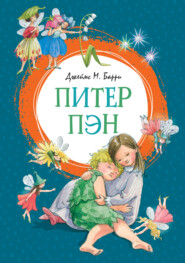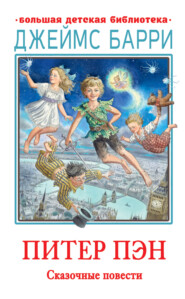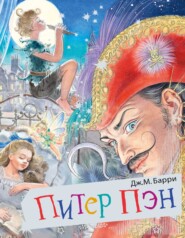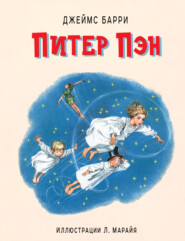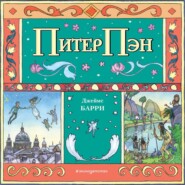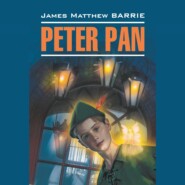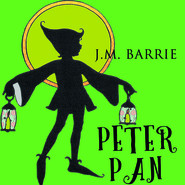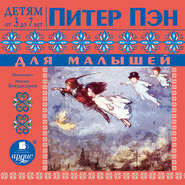По всем вопросам обращайтесь на: info@litportal.ru
(©) 2003-2025.
✖
The Little Minister
Настройки чтения
Размер шрифта
Высота строк
Поля
“How could I presume to believe you?” he answered. “You are a beggar by profession, and yet talk as if – pooh, nonsense.”
“I would live on terrible little,” Nanny whispered, “and Sanders will be out again in August month.”
“Seven shillings a week,” rapped out the doctor.
“Is that all?” the Egyptian asked. “She shall have it.”
“When?”
“At once. No, it is not possible to-night, but to-morrow I will bring five pounds; no, I will send it; no, you must come for it.”
“And where, O daughter of Dives, do you reside?” the doctor asked.
No doubt the Egyptian could have found a ready answer had her pity for Nanny been less sincere; as it was, she hesitated, wanting to propitiate the doctor, while holding her secret fast.
“I only asked,” McQueen said, eyeing her curiously, “because when I make an appointment I like to know where it is to be held. But I suppose you are suddenly 120 to rise out of the ground as you have done to-day, and did six weeks ago.”
“Whether I rise out of the ground or not,” the gypsy said, keeping her temper with an effort, “there will be a five-pound note in my hand. You will meet me to-morrow about this hour at – say the Kaims of Cushie?”
“No,” said the doctor after a moment’s pause; “I won’t. Even if I went to the Kaims I should not find you there. Why can you not come to me?”
“Why do you carry a woman’s hair,” replied the Egyptian, “in that locket on your chain?”
Whether she was speaking of what she knew, or this was only a chance shot, I cannot tell, but the doctor stepped back from her hastily, and could not help looking down at the locket.
“Yes,” said the Egyptian calmly, “it is still shut; but why do you sometimes open it at nights?”
“Lassie,” the old doctor cried, “are you a witch?”
“Perhaps,” she said; “but I ask for no answer to my questions. If you have your secrets, why may I not have mine? Now will you meet me at the Kaims?”
“No; I distrust you more than ever. Even if you came, it would be to play with me as you have done already. How can a vagrant have five pounds in her pocket when she does not have five shillings on her back?”
“You are a cruel, hard man,” the Egyptian said, beginning to lose hope. “But, see,” she cried, brightening, “look at this ring. Do you know its value?”
She held up her finger, but the stone would not live in the dull light.
“I see it is gold,” the doctor said cautiously, and she smiled at the ignorance that made him look only at the frame.
“Certainly, it is gold,” said Gavin, equally stupid.
“Mercy on us!” Nanny cried; “I believe it’s what they call a diamond.”
“How did you come by it?” the doctor asked suspiciously.
“I thought we had agreed not to ask each other questions,” the Egyptian answered drily. “But, see, I will give it to you to hold in hostage. If I am not at the Kaims to get it back you can keep it.”
The doctor took the ring in his hand and examined it curiously.
“There is a quirk in this,” he said at last, “that I don’t like. Take back your ring, lassie. Mr. Dishart, give Nanny your arm, and I’ll carry her box to the machine.”
Now all this time Gavin had been in the dire distress of a man possessed of two minds, of which one said, “This is a true woman,” and the other, “Remember the seventeenth of October.” They were at war within him, and he knew that he must take a side, yet no sooner had he cast one out than he invited it back. He did not answer the doctor.
“Unless,” McQueen said, nettled by his hesitation, “you trust this woman’s word.”
Gavin tried honestly to weigh those two minds against each other, but could not prevent impulse jumping into one of the scales.
“You do trust me,” the Egyptian said, with wet eyes; and now that he looked on her again —
“Yes,” he said firmly, “I trust you,” and the words that had been so difficult to say were the right words. He had no more doubt of it.
“Just think a moment first,” the doctor warned him. “I decline to have anything to do with this matter. You will go to the Kaims for the siller?”
“If it is necessary,” said Gavin.
“It is necessary,” the Egyptian said.
“Then I will go.”
Nanny took his hand timidly, and would have kissed it had he been less than a minister.
“You dare not, man,” the doctor said gruffly, “make an appointment with this gypsy. Think of what will be said in Thrums.”
I honour Gavin for the way in which he took this warning. For him, who was watched from the rising of his congregation to their lying down, whose every movement was expected to be a text to Thrums, it was no small thing that he had promised. This he knew, but he only reddened because the doctor had implied an offensive thing in a woman’s presence.
“You forget yourself, doctor,” he said sharply.
“Send some one in your place,” advised the doctor, who liked the little minister.
“He must come himself and alone,” said the Egyptian. “You must both give me your promise not to mention who is Nanny’s friend, and she must promise too.”
“Well,” said the doctor, buttoning up his coat, “I cannot keep my horse freezing any longer. Remember, Mr. Dishart, you take the sole responsibility of this.”
“I do,” said Gavin, “and with the utmost confidence.”
“Give him the ring then, lassie,” said McQueen.
She handed the minister the ring, but he would not take it.
“I have your word,” he said; “that is sufficient.”
Then the Egyptian gave him the first look that he could think of afterwards without misgivings.
“So be it,” said the doctor. “Get the money, and I will say nothing about it, unless I have reason to think that it has been dishonestly come by. Don’t look so frightened at me, Nanny. I hope for your sake that her stocking-foot is full of gold.”
“Surely it’s worth risking,” Nanny said, not very brightly, “when the minister’s on her side.”
“Ay, but on whose side, Nanny?” asked the doctor. “Lassie, I bear you no grudge; will you not tell me who you are?”







